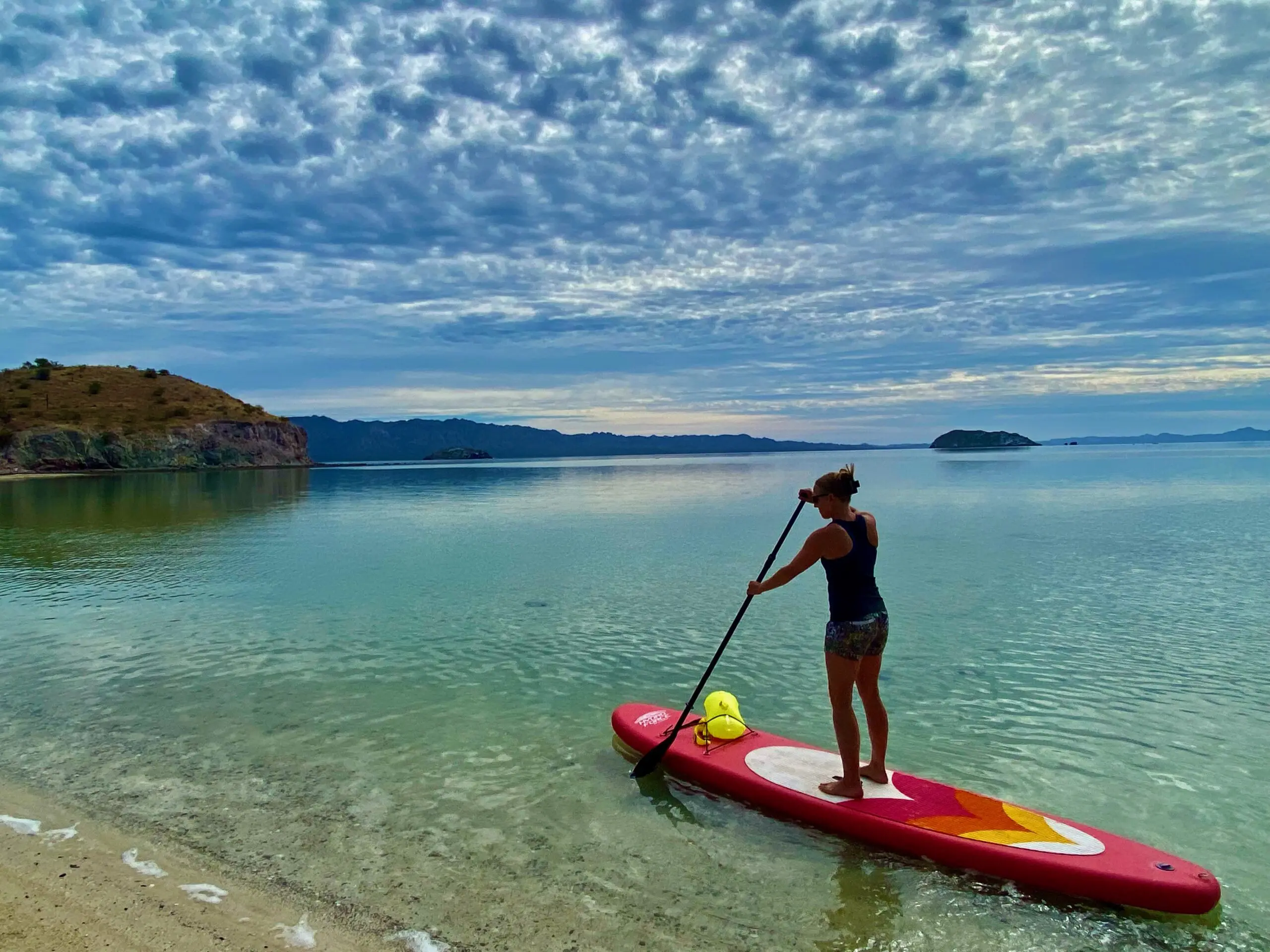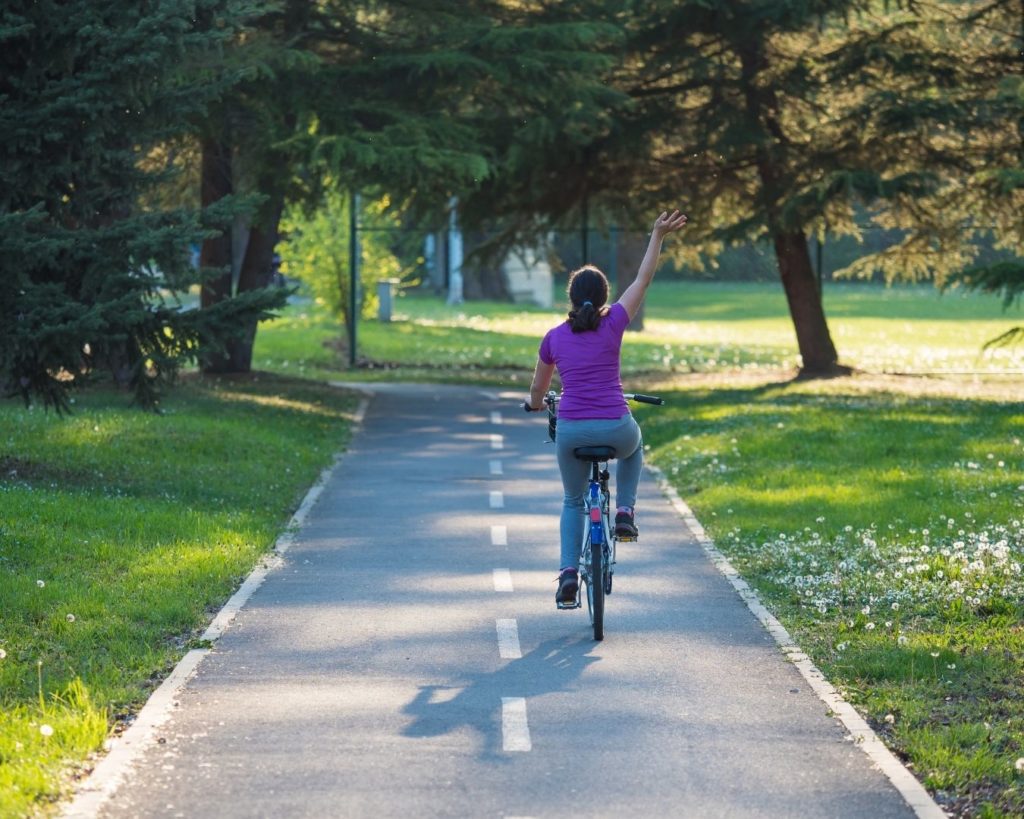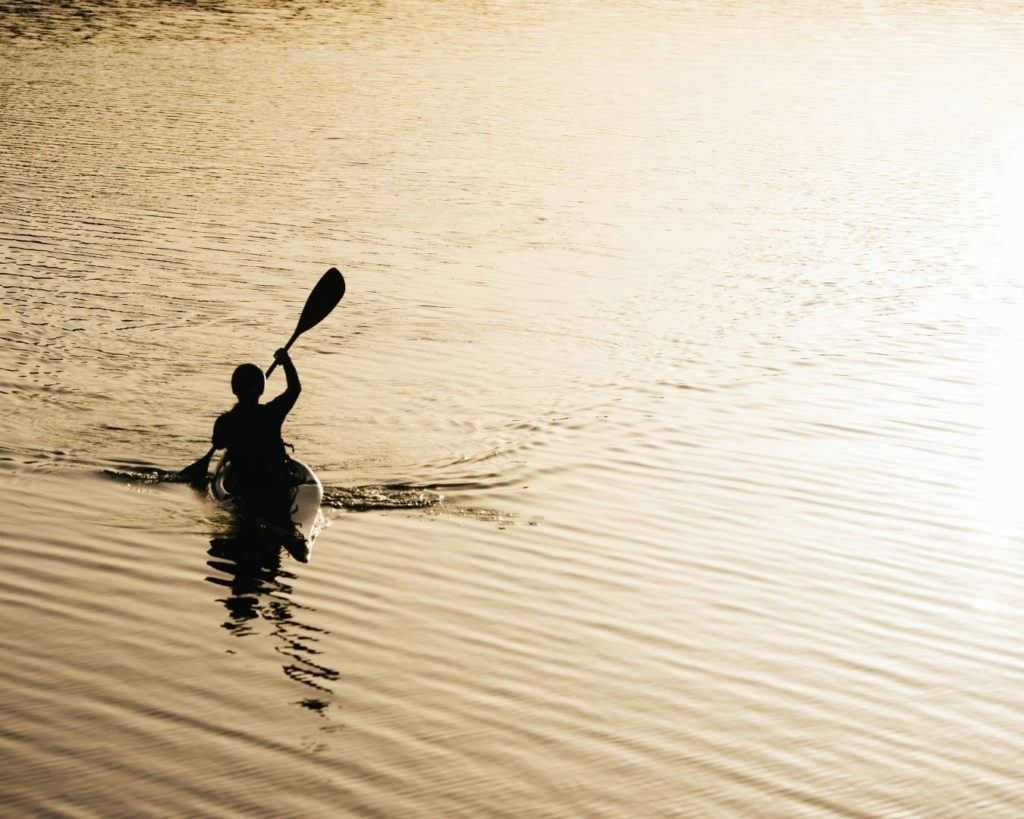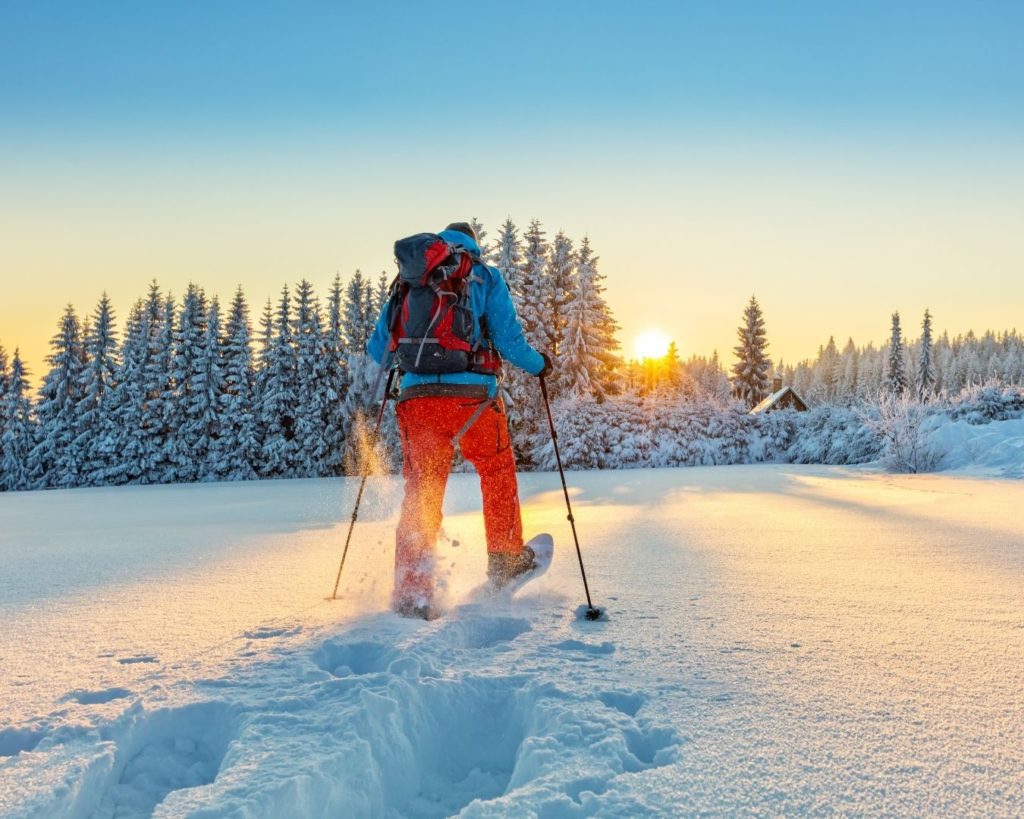Benefits of Getting Outdoors
If you’re a self-professed homebody, you could seriously benefit from a change of scenery. Spending time in nature could improve your physical and mental health, ward off illness, and actually make you happier!
As the Father of Western Medicine, Hippocrates, once said, “Nature itself is the best physician.” If you’re curious about the health benefits you can reap from being outside, read on! Below, we cover 13 reasons to soak up everything nature has to offer – along with some tips for how to enjoy the great outdoors safely.
My personal why for getting outside is that I simply feel happier. The more time I spend outdoors hiking, running, biking, or just walking my dog, the less time I spend on my phone and that’s a win for me!
1. Being in Nature Boosts Life Satisfaction
If you’ve been feeling blue, visit somewhere green! A recent study found that men and women who spent just 20 minutes in a park setting reported a 64% hike in life satisfaction. (hike- HA, see what we did there?)
The best news? Participants’ satisfaction levels had nothing to do with physical activity! Simply visiting the park boosted well-being. Of course, getting active in nature adds a plethora of additional health benefits.

2. Soaking Up the Sun Elevates Vitamin D Levels
Regular sun exposure is the best source of vitamin D. An estimated 40% of U.S. men and women are vitamin D deficient, which can lead to some pretty scary health implications, including depression, cancer, and osteoporosis.
Penciling in your time outside around midday is ideal, especially if you’re short on time, as UVB rays reach their peak around noon. Exposure later in the day has been linked to skin cancer.
3. Spending Time Outdoors May Lower Blood Pressure
Sunlight does so much more than boost vitamin D levels… It can actually lower your blood pressure! Researchers report that the nitric oxide present in the skin responds to the sun’s rays by widening blood vessels, resulting in lower blood pressure. Keeping your blood pressure within a normal range is important because it reduces your risk of heart attack or stroke.
Although study participants whose blood pressure was already in the normal range noticed a minimal drop, it’s believed that folks with high blood pressure would likely experience a more significant change.
4. Outdoor Time Can Reduce Inflammation
Inflammation has been linked to a host of health problems, from autoimmune disorders to depression and even cancer. Various studies have shown that spending time in green spaces reduces inflammation.
Men and women of all ages can benefit from the natural inflammation-buster of simply venturing outside. From healthy, college-aged males to elderly patients, studies have shown a marked difference in inflammation among individuals who spent time in the forest.

5. Being Outside is Good for Eyesight
Surprisingly, spending time outdoors in childhood could lead to better vision later in life. A recent Canadian study found that spending time in nature greatly reduces the risk of myopia, more commonly known as nearsightedness.
Believe it or not, one-third of U.S. adults experience myopia, and one key contributor is a lack of outdoor time in childhood. If you have children, encourage them to spend time outdoors daily to preserve their vision later on. It’s easier than getting them to eat carrots right?
6. Outdoor Time Improves Sleep
Struggling to snooze? Going outdoors could improve your quality of sleep, according to Stanford Medicine. It seems that increasing the amount of time an individual spends outside helps to regulate body temperature, along with the sleep-wake cycle, otherwise known as the circadian rhythm.
While spending time in nature could lead to better sleep for people of all ages, the benefits seem to be most notable for men over the age of 65.

7. Being Outdoors Burns More Calories
Whether you venture outside to relax or workout, you’ll burn more calories than if you had stayed inside. While outdoors, the body works hard to balance CO2 levels and consume oxygen, both of which require more energy, leading to a higher calorie burn.
Outdoor workouts are particularly effective because the body must constantly adapt to the terrain. Plus, outdoor fitness tends to be more enjoyable, so you’re more likely to stick to a routine.
8. Spending Time Outside Increases Happiness
It probably comes as no surprise that outdoor time can have a positive effect on mood. In an interview with National Geographic, author Florence Williams discussed an experiment she conducted to track her own happiness over a one-year period. In addition to spending time with friends, vacationing, and listening to music, Williams discovered that being outdoors made her incredibly happy.
The boost in mood from being outside may be due, in part, to nature’s ability to zap anxiety and ruminating thoughts. A 2015 study published by Science Direct found that folks who walked in a wooded area reported a better emotional state when compared to study participants who walked in an urban location. If you live in a city, try to schedule regular trips to green areas for mood-lifting benefits.
9. Promotes Mental Wellness through Physical Activity
I reached out to the experts AB Korkor Foundation on how physical activity improves mental well-being. Being outdoors and engaging in movement offers significant mental health benefits, largely due to the natural effects of physical activity in an outdoor environment on the brain. Research suggests that outdoor movement can lower cortisol levels, thereby reducing stress and anxiety while enhancing overall mood. This effect is amplified outdoors due to exposure to natural light and greenery, which stimulate the brain’s release of serotonin, a neurotransmitter that boosts mood and promotes feelings of well-being.
A study from Stanford University found that walking in nature reduces activity in the prefrontal cortex, a brain region associated with repetitive, negative thoughts. Participants who walked in natural environments reported less rumination and showed reduced neural activity in this area compared to those who walked in urban settings. Additionally, exposure to outdoor environments can improve cognitive function, including memory and focus.
Overall, combining movement with the outdoors benefits the brain by alleviating stress, boosting mood through serotonin, and lowering activity associated with negative thought patterns, which supports a happier, healthier mind. Please check out more information with the AB Korkor Foundation for Mental Health, Why Move?
10. Outdoor Time Relieves Pain Naturally
Exposure to nature may be the best medicine for healing and pain relief. Research indicates that patients who undergo surgery experience quicker recovery and don’t require as much pain relief when exposed to green spaces.
In addition to recovery from surgical procedures, “green exercise,” or exercising in nature, is suggested for chronic pain sufferers.
11. Spending Time in Green Spaces Boosts Immunity
If you’re prone to illness, getting outdoors may help. Research suggests that spending time in nature wards off everything from diabetes and ADHD to cardiovascular disease and cancer. This is largely due to the relaxed state that nature promotes.
Forests are particularly beneficial for the immune system, as plants produce phytoncides, which have been shown to increase natural killer cells—a type of white blood cell in humans. Plus, sun exposure strengthens infection-fighting T cells.

12. Time Outdoors Increases Social Interaction
As humans, we’re social creatures who need regular interaction with others. Spending time outdoors is a great way to connect with other people, whether it’s at the local dog park, beach, or sports field.
According to Psychology Today, an active social life boosts feelings of well-being, as well as the immune system. Social interaction is also great for brain health, and can even ward off dementia. Plus, social folks tend to live longer! But really, we don’t need a study to tell us that we’re much more interactive when we’re not on our phones.
 13. The Great Outdoors Generates Creativity
13. The Great Outdoors Generates Creativity
It’s not a fluke that the best ideas come to us when we’re in a relaxed state. A great way to promote creativity is by unplugging and enjoying time in nature. The key is disconnecting from technology, including social media, and giving your mind a much-needed respite.
In everyday life, most individuals are on a constant mission to accomplish as much as possible, resulting in decreased focus. Thankfully, it seems nature has the ability to restore attention, which can lead to improved creativity.
In fact, most of our ideas for TripOutside come from being on a hike and not from trying to force new concepts on the whiteboard.
How Much Outdoor Time is Enough?
Science suggests that spending 120 minutes in nature each week is ideal for optimal health and well-being. While getting outside daily could undoubtedly make you feel better, researchers note that the recommended two hours per week doesn’t have to be divvied up evenly. That’s great news for folks who live in urban areas, have limited access to nature, and those with hectic schedules. Whether you venture outdoors one day per week or seven, you’ll reap the rewards.
THE BEST WAYS TO GET OUTSIDE
As so many of the above studies show, even just a brief step outside in the middle of the workday to breathe the fresh air and soak up a little sunshine will generate health benefits for you. Small amounts of outdoor time will have positive effects on your health, and longer, more active stints in the outdoors will generate the most benefits. Here are our favorite ways to get outside and absorb all the health benefits of nature!
Hop on a Bike
The benefits of cycling are plentiful, from improved cardio and muscle strength to better mood and reduced risk of disease. While some of these benefits can be gained from a spin class or stationary bike, you’re going to get even more perks from taking a bicycle outside. Plus, there’s no shortage of ways to enjoy the outdoors on two wheels!
Cycling is for everyone. Consider taking a cruiser bike or e-bike along an easy, paved greenway or hit some thrilling downhill trails on a mountain bike. Whatever you decide, there’s no shortage of places to go for an amazing outdoor cycling adventure.
Get out for a Paddle
We’ve outlined the many advantages of spending time outdoors, and there are additional studies that show spending time near water has even more benefits for the human mind. In 2015, a marine biologist published the book “Blue Mind: The Surprising Science That Shows How Being Near, In, On, or Under Water Can Make You Happier, Healthier, More Connected, and Better at What You Do.” It rapidly became a bestseller and many surfers, swimmers, and other water enthusiasts cite it as proof of what they’ve been saying all along: being near the water makes us feel better.
One quick and easy way to reap the benefits of nature and the outdoors is by taking a short hike to a waterfall or swimming hole. If your next vacation has some decent breaks, try a surfing lesson and get out on the waves! Discover some of the best surfing beaches for learning to ride the waves like a pro.
If you have a body of water like a river or lake nearby, rent a stand up paddle board, kayak or canoe to explore by paddle. If you’re trying to incorporate more outdoor time and Blue Mind Science into your life, it’s important to diversify your activities and make it interesting. Trying new activities often can keep you drawn to and connected with nature and the outdoors!
Savor the Snow
Especially in the winter months, our bodies are craving many of the benefits of nature. We naturally don’t spend as much time outside in the winter because it is cold, but our bodies still need the vitamin D and physical exercise and fresh air, despite the cooler temperatures.
Some people are intimidated by outdoor winter activities like snowshoeing and skiing because they require gear, but a good outfitter will get you suited up properly so you stay warm and provide you with high-quality, well-fitted equipment so you can enjoy your day in the snow. Your body needs the benefits of the outdoors year-round, so don’t let your outdoor habits dwindle in the winter months. In fact, we think winter sports are one of the best ways to get outside and enjoy the beauty of winter because they often allow you to escape the crowds. Whether you choose to ski or snowboard at a ski resort, or try your hand at cross country skiing or snowshoeing, your body and mind will thank you for getting outside!
Tips for Optimizing Your Outdoor Time—and Staying Safe
We’d be remiss not to mention a few tried-and-true tips for enhancing your outdoor adventures and keeping yourself safe:
- Know where to go: Although there is so much information available, it can lead to analysis paralysis. We love apps like AllTrails that can help you find the closest hike or outdoor activity to you and filter by distance, how strenuous it is and read reviews from others.
- Dress for the weather: Check the forecast before venturing out, and be prepared for possible weather conditions, such as rain or snow.
- Wear sunscreen: Broad-spectrum sunscreen is a must, whether it’s bright and sunny or cloudy and gray. If you’ll be physically active or in water, opt for sweat and water-resistant protection.
- Stay hydrated: Be sure to tote along plenty of water and a snack, along with a meal if you’ll be off the grid for an extended period of time.
- Check-in with loved ones first: Before making your way to the park or forest, let your loved ones know exactly where you’ll be, as cell reception may be spotty.
Venturing outside on a regular basis will undoubtedly have positive short-term and long-term effects on your overall health and well-being. While you’ll likely notice an immediate difference in your mood and energy level, consider keeping a written record of your outdoor adventures and any changes in your health, as many benefits tend to occur gradually.
Most importantly, enjoy your time away from the daily grind!
We also hope that by spending time outside, we’ll all appreciate nature more and work towards preserving it for future generations. No matter what you do outdoors to stay active, fit and healthy, make sure you follow Leave No Trace principles, and recreate responsibly outdoors to ensure our wilderness areas stay pristine for generations to come.








